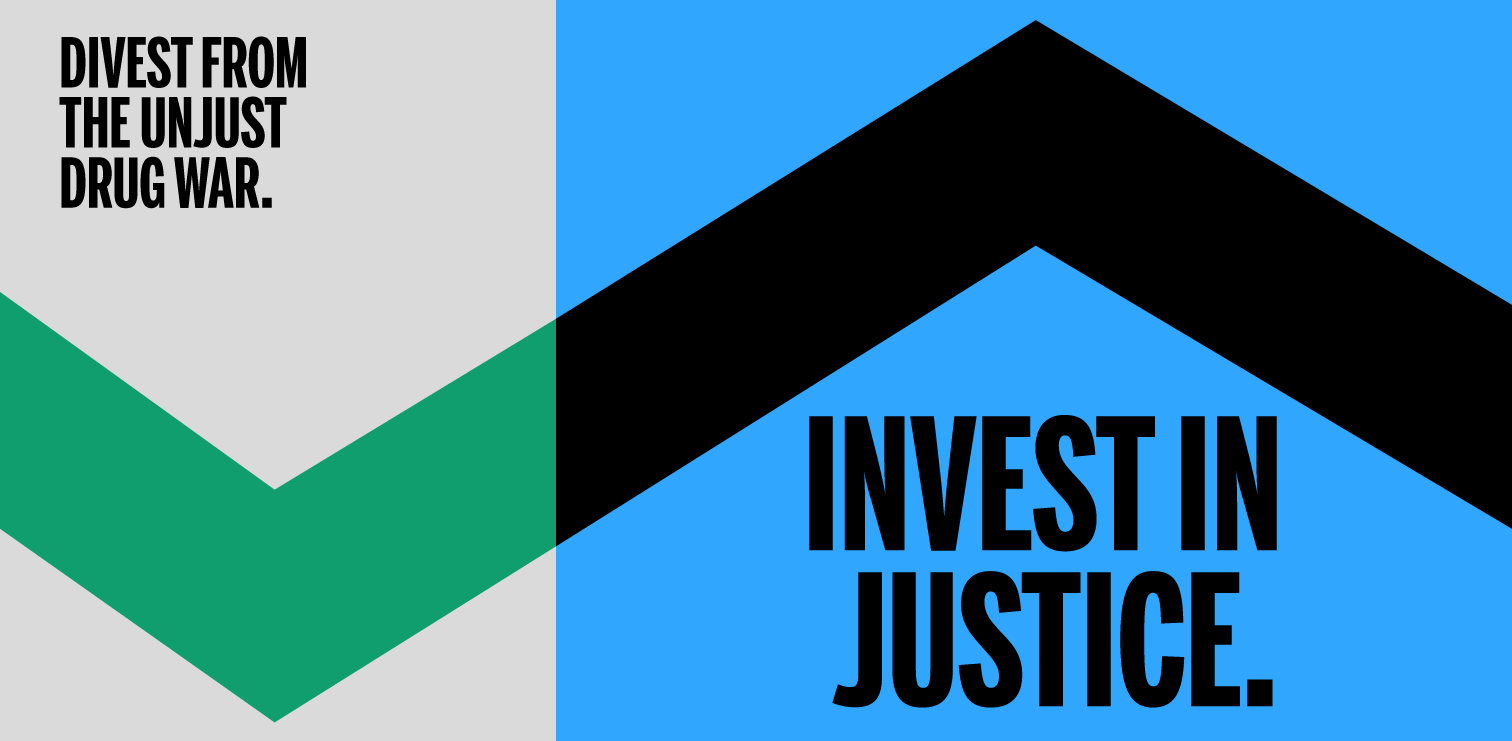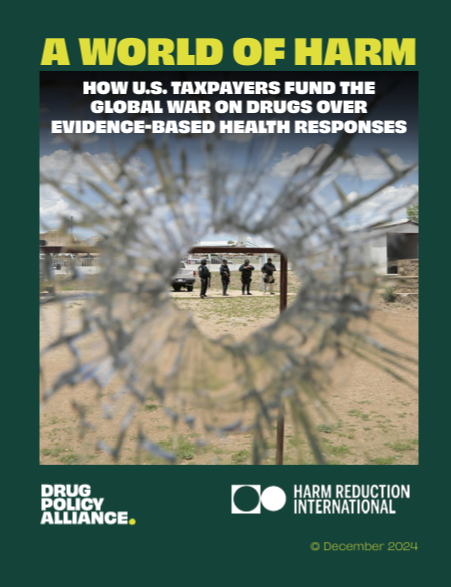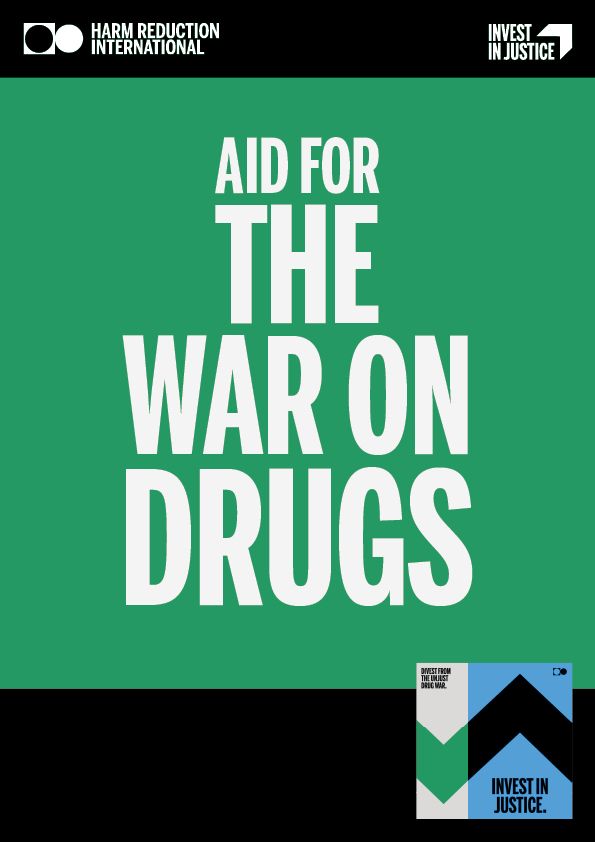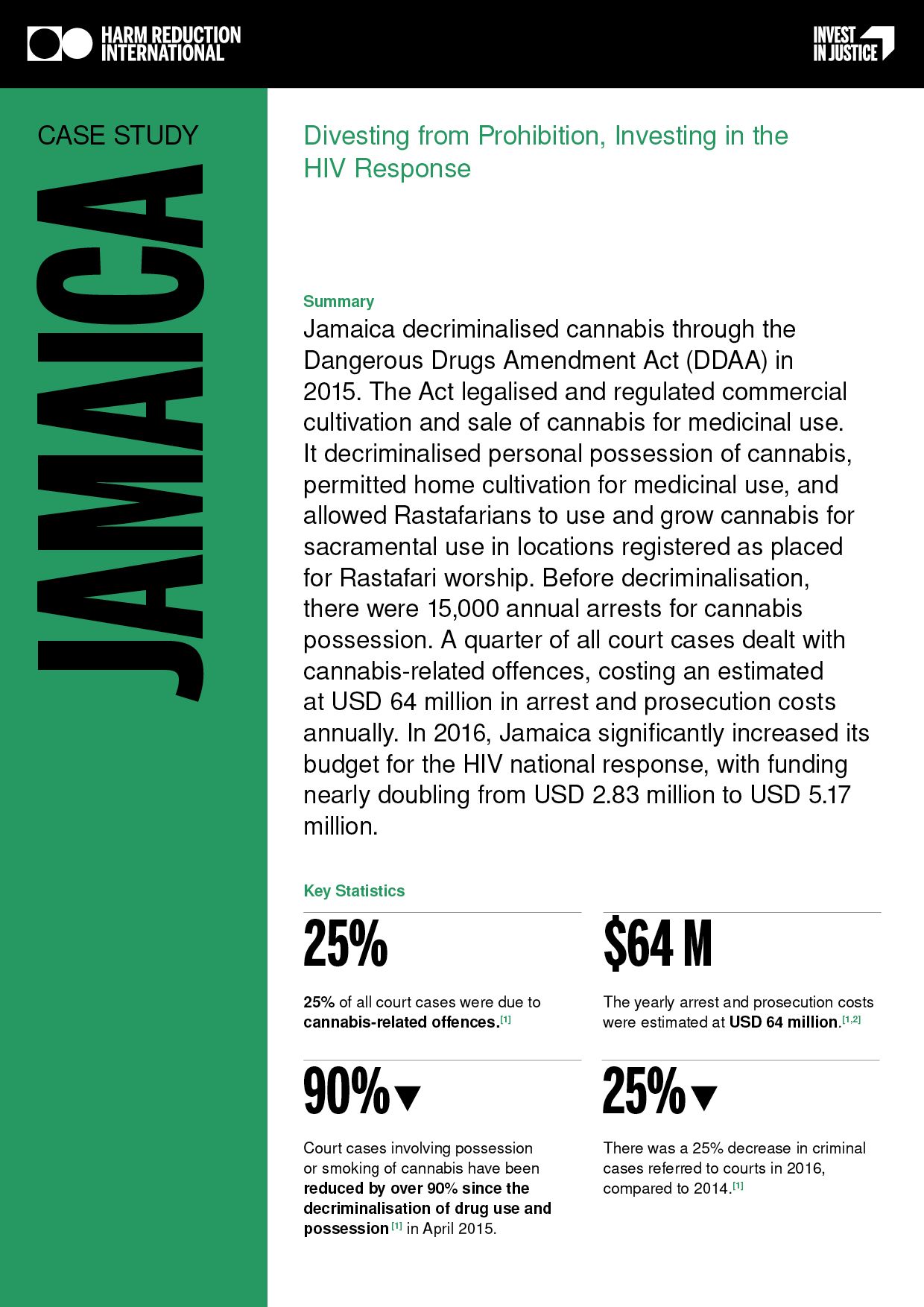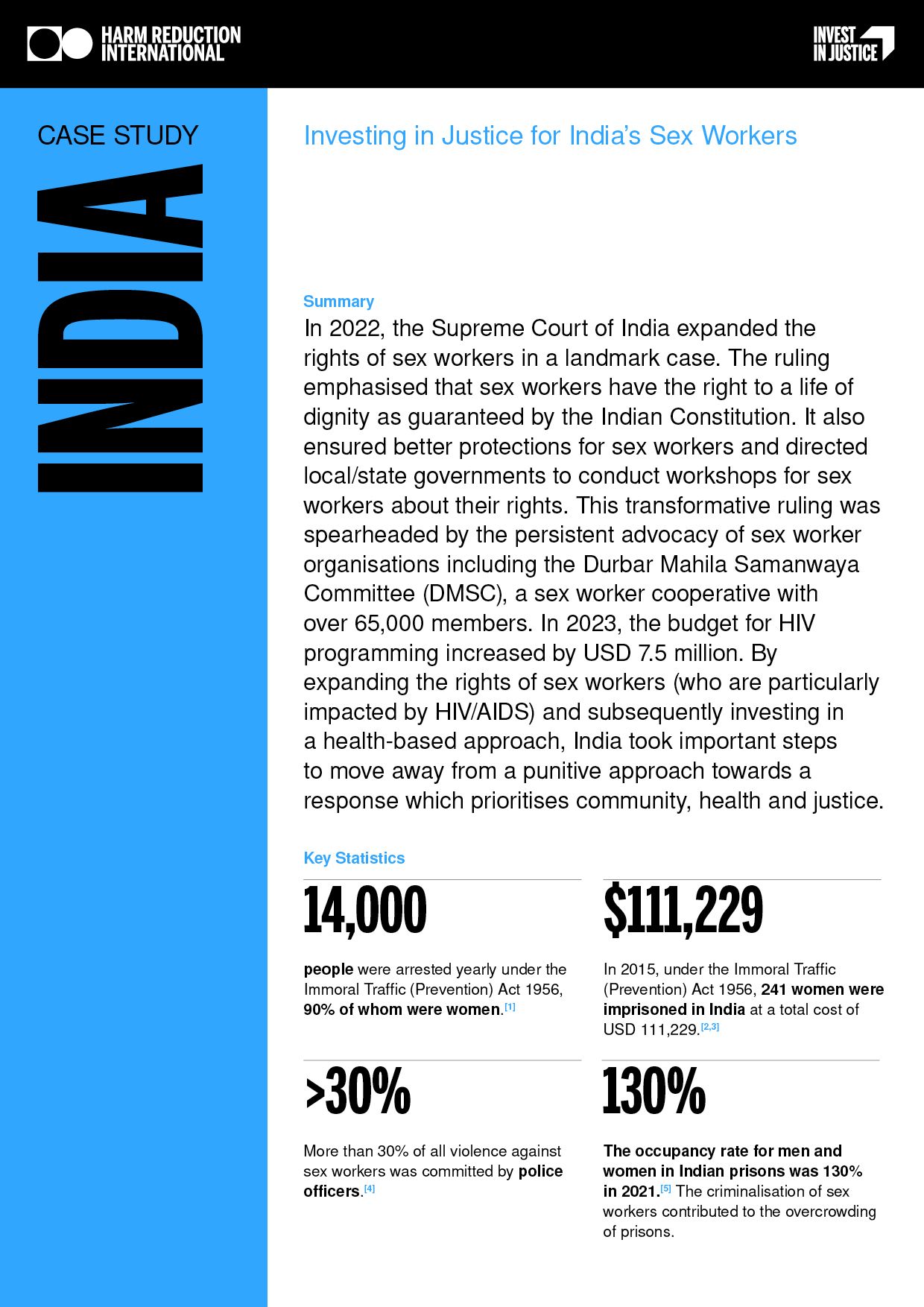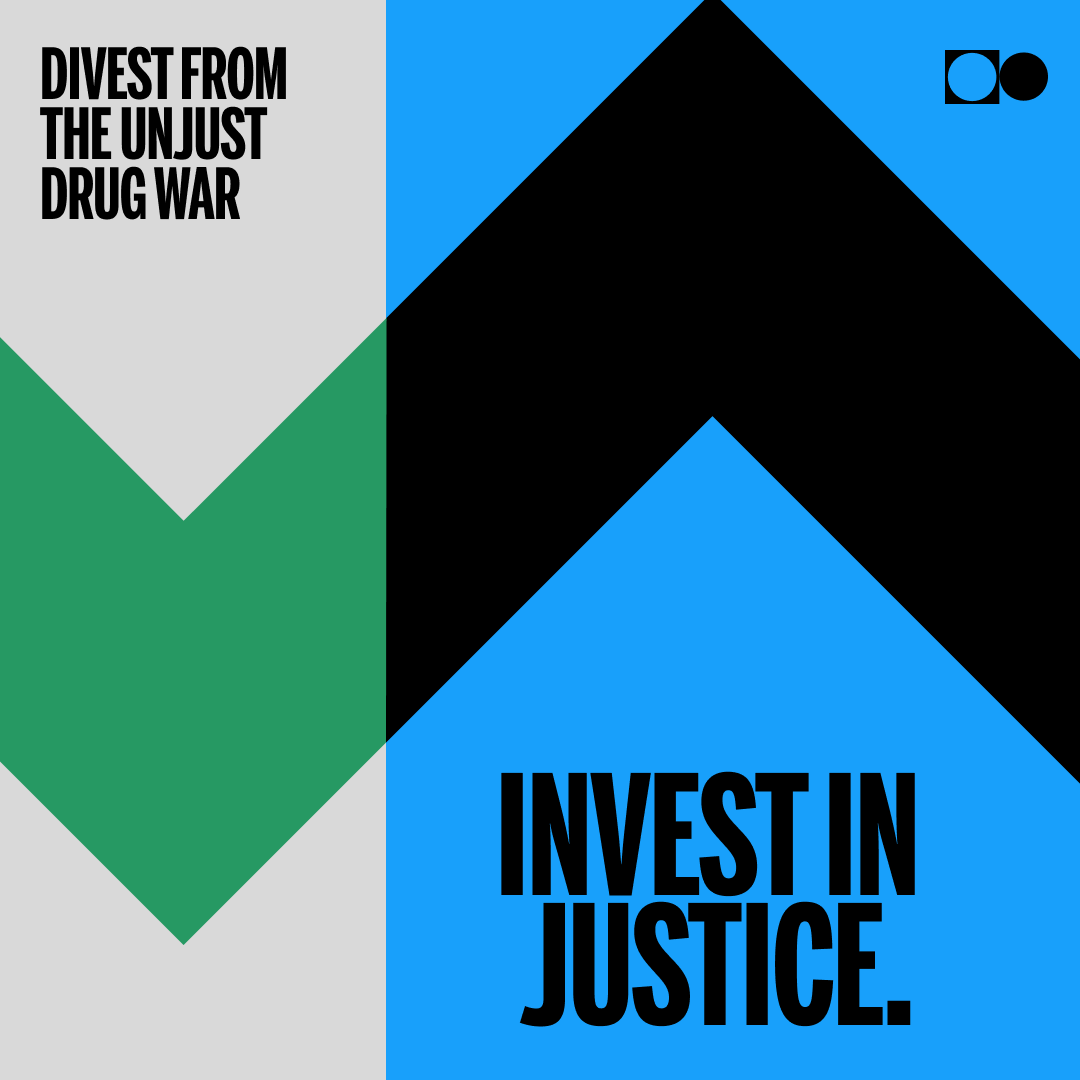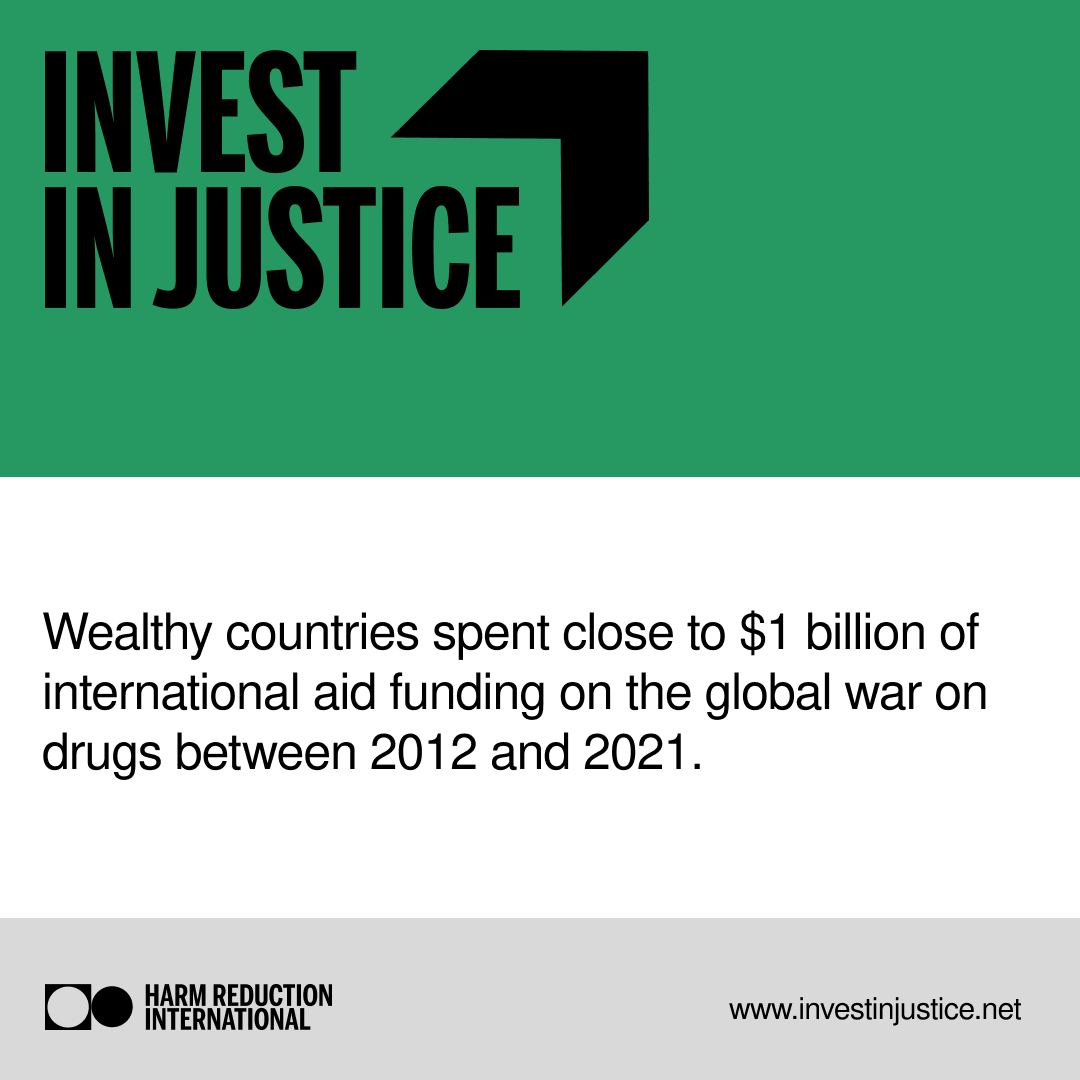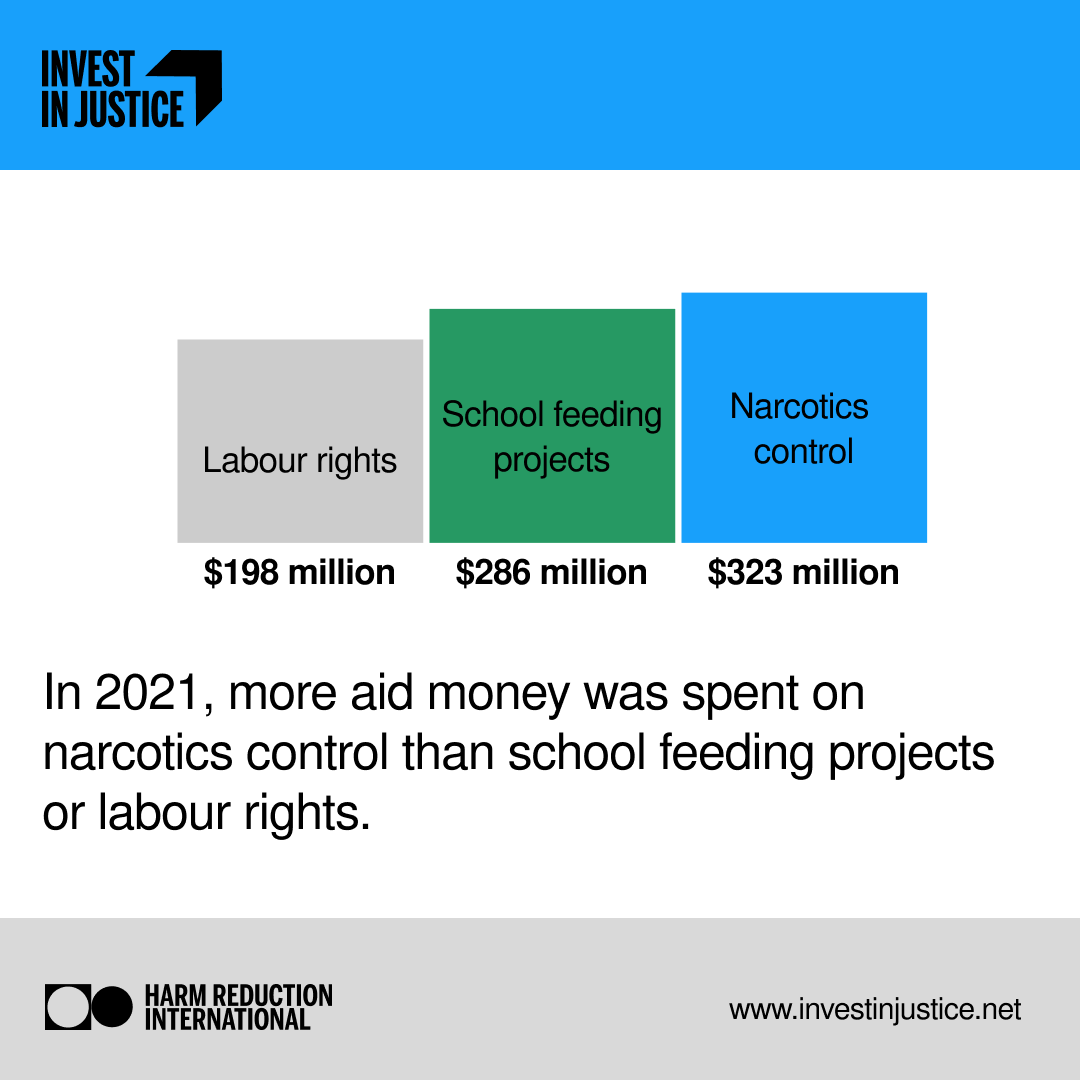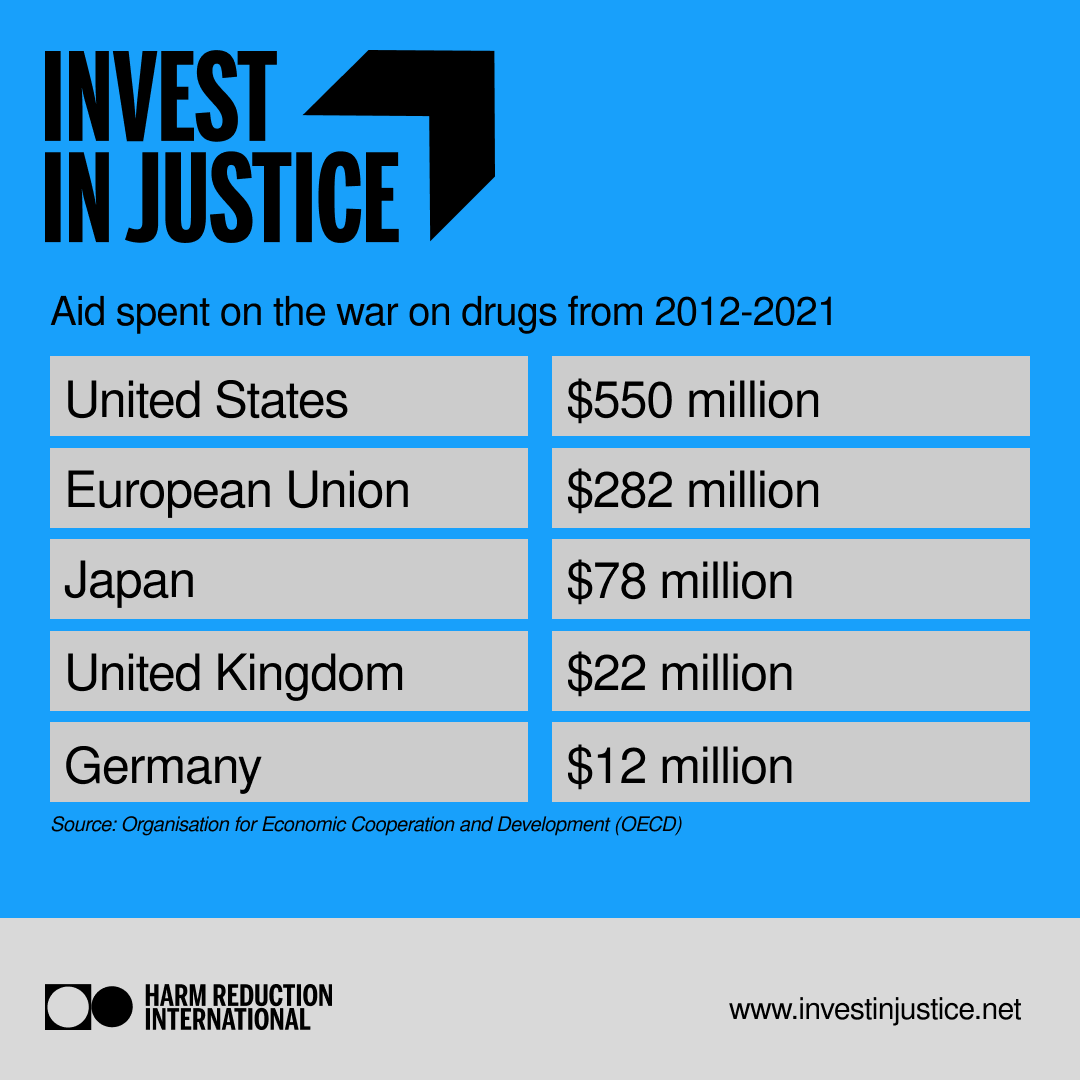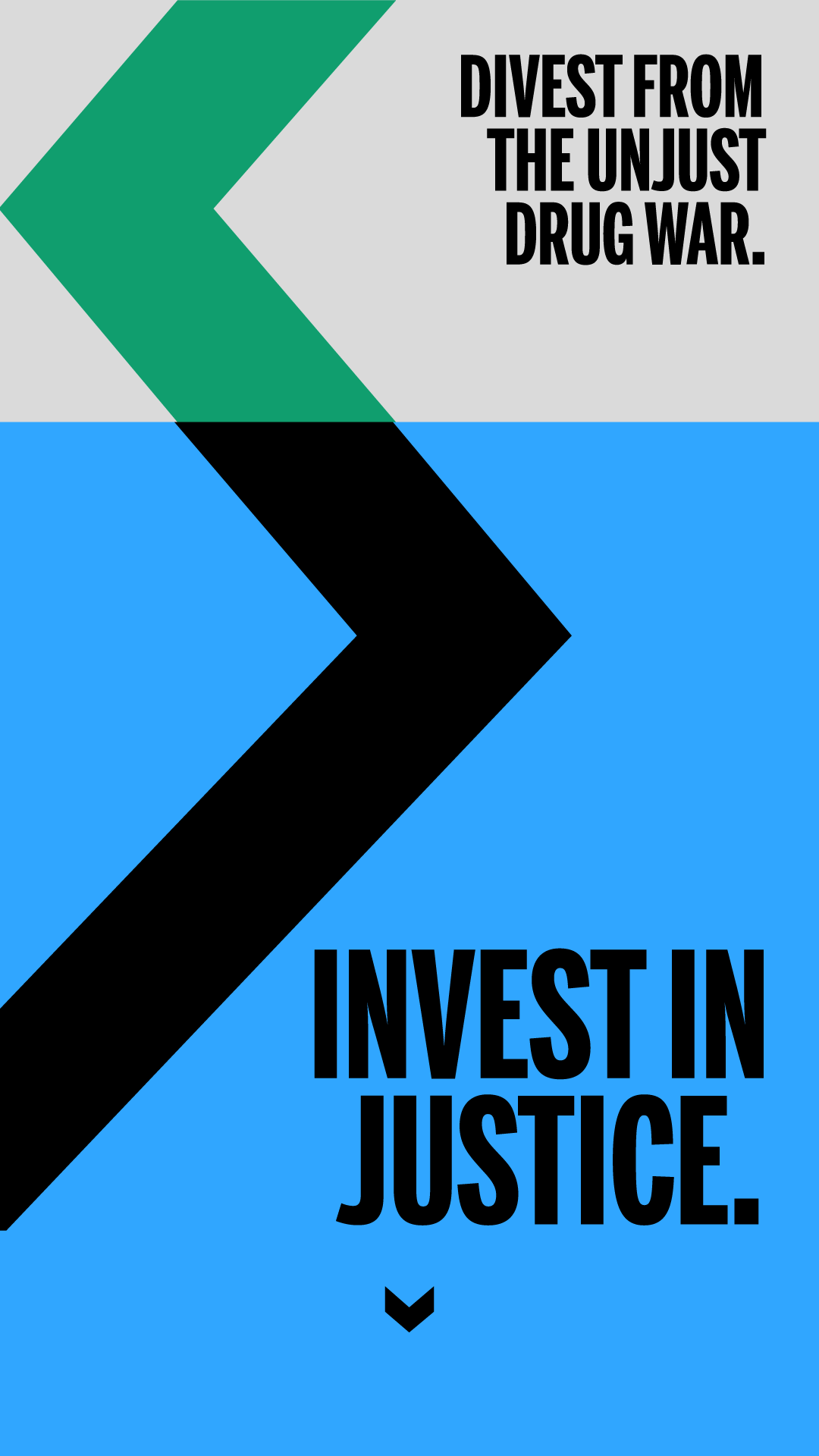
The war on drugs is unjust and ineffective.
Prioritising communities, health and justice works.
But governments continue to fund the war on drugs and fail to invest in justice.
Criminalising drugs doesn’t decrease drug use or sale, and it doesn't help to reduce drug-related harms.
Punitive drug laws violate human rights, fuel racial injustice, and drive the spread of diseases like HIV and hepatitis—all while wasting public funds on ineffective, harmful policies. Governments and donors continue to pour money into punitive drug policies instead of investing in proven solutions that promote community, health, and justice.
We must divest from this ineffective and unjust response to drugs. When we do, we free up essential funds to invest in programmes that prioritise community, health, climate, and justice.
This includes harm reduction as well as other social and community programmes that benefit marginalised people and lead to healthier, safer societies.
This campaign unites a broad and diverse coalition of people working in allied social justice movements that are challenging exclusion, criminalisation, stigma and discrimination. This includes advocates working on racial justice, criminal legal reform, gender justice, sex workers’ rights, LGBTQIA+ rights, and climate justice.
Join our campaign to invest in justice.
Sign up to receive campaign updates, advocacy tools, and inspiration from advocates around the world.
We spend over USD 100 billion on drug law enforcement each year, but at last count investment in harm reduction totalled only USD 151 million. This is merely 6 percent of what is needed in low- and middle-income (LMI) countries. Decades of punitive drug laws have not decreased drug use or sales. Instead, they have resulted in human rights violations, increased HIV and hepatitis, and the loss of life. These laws stigmatise and criminalise people, particularly those from marginalised communities. Globally, drug laws have upheld racist and colonial structures and resulted in poor health for people and communities.
At the international level, prominent global powers exert influence over drug policy in low-and middle-income countries via funding flows, the provision of resources and technical assistance, and the promotion of prohibition. A striking example of this is the use of public funds for narcotics control, as governments use official development assistance (ODA) budgets to fund the global war on drugs.
- We call on government and donors to divest from the unjust drug war and related punitive drug law enforcement at the international, national, and subnational levels, and invest in programmes that prioritise community, health and justice.
- We call on donor countries to stop using money from their limited development aid budgets for narcotics control, which often violates human rights and undermines health and development goals.
- We call on donors and governments to be transparent about their national and international spending on drug policy.
Thank you for signing up to our campaign!
Look out for campaign updates in your Inbox.
The drug war disproportionately affects women, trans and gender diverse people.
While 1 in 3 drug users are women, they make up only 1 in 5 accessing drug treatment. Trans women are 49 times more likely to be living with HIV. These punitive laws also fuel mass incarceration—33% of imprisoned women globally are jailed for drug offences, with female imprisonment rates rising sharply, especially in Asia, the Pacific, and Latin America.
The drug war upholds racist structures.
This leads to systemic discrimination and devastating health outcomes for Black, Brown, and Indigenous communities. In the USA, Black individuals are 4 times more likely to be arrested for drug possession than white individuals. In the UK, Black people are 9 times more likely to be stopped and searched under drug laws. Indigenous and Black communities in Canada, Australia, and the USA face higher incarceration rates and worse health outcomes due to lack of harm reduction services.Colonial-era drug policies continue to criminalise Indigenous communities and traditions, exacerbating health crises like HIV and hepatitis C.
The drug war destroys the environment.
Punitive drug policies like aerial fumigation of crops drive deforestation, toxic pesticide use, and pollution.Laws and treaties that criminalise drugs are threatening ecologically fragile areas.
